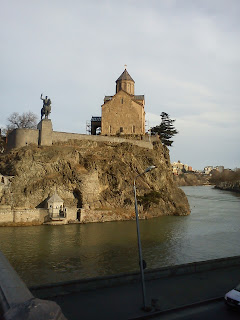Re-calling [forth] sustainable tourism, II
(#GreenShift #2)
A second piece
to recall how sustainable tourism evolved. The first one is here, https://sustainableexperience.blogspot.com/2020/07/re-calling-forth-sustainable-tourism.html
and I am writing this because it is my firm belief that remembering is understanding.
In 2004, the World
Tourism Organization (WTO) specified that achieving fully sustainable tourism is
a continuous process, and requires constant monitoring of the impacts, the
persistent implementation of corrective measures and preventive measures.
Sustainable tourism won’t ever be a zero impact actvity. Zero impact in human
activities is rare, and for a huge industry like tourism is a make-believe.
Still, the
assessment of the WTO comes after a gestation of decades, and definitely is not
rootless.
In 1987, the
World Commission on Environment and Development, also named after its president
the Bruntland Commission, published the report "Our Common Future".
The report was largely later embedded in the Earth Summit in Rio de Janeiro, in
1992 and the in third UN Conference on Environment and Development in
Johannesburg, in 2002. Its contribution to make sustainability definable
remains a cornerstone today. The idea of sustainability increasingly took shape
as a form of development that makes possible to meet today's needs without
compromising their satisfaction for the future generations.
In 1995 the
World Travel and Tourism Council (official website https://wttc.org/, and
current updates about the COVID crisis here https://wttc.org/COVID-19), a body
that gathers a hundred of the largest planetary tourism companies, joined
forces with the WTO and the Earth Council (https://earthcouncilalliance.org/ ).
From this union stemmed the answer to the challenges launched by the Rio
Declaration of 1992. The product of the collaboration is the Agenda 21 for the
Travel and Tourism Industry, meant to be a significant step towards a
sustainable development of the tourist sector.
Since the days
of these first meaningful steps, the toolbox for the assessment, the monitoring
and the rating of sustainable tourism has been enriched by local, regional,
macro-regional and global experience.
Just to quote a
couple of examples from where I am writing, the Italian Bandiera Lilla, a
municipality-based program for a more inclusive tourism, tailored for
unpaired/disable tourists; Or the Blue Flag system for classifying beaches in
Europe.
At a more than
macro-regional level, the United Nations Environment Program (UNEP)assists tour
operators through the Tour Operators Initiative with the purpose to achieve the
creation of a fully sustainable tourism chain. The International Standard
Organization (ISO) has developed a standard for an environmental management
system for companies, ISO 14001.
The core of all
these different programs, projects, bodies is to consolidate a culture of
development that ensures that today's benefits are persistent over time. The
perspective is reversed to the logic of maximum exploitation of the present
resources regardless of their depletion and possible disappearance. Such an
approach has limited time horizon as it does not include considerations for the
medium and long terms.
There will be
the chance in future to share some more in-depth reflections about time, time
horizons. Just a quick bite here: extending the time, and extending the time
horizon is the same principle which triggered the birth of the Slow Food
Movement as a reaction to the fast food culture. Slow food is now a vibrating
reality and a major force in the sustainability camp and in the tourism sector
of many destinations in Italy and elsewhere (https://www.slowfood.com/)
In
sustainability the effort is to strike a balance among different priorities:
people's rights to a decent and safe life, the protection, preservation and
promotion of the eco-system and bio-diversity, in a way that all human, animal,
environmental, economic, social, cultural and aesthetic resources must be
guaranteed with integrity, safety and regeneration processes.
A task, perhaps
I’d better say a mission, as challenging, as reinvigorating ֎


Commenti
Posta un commento